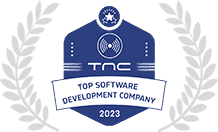In the fast-evolving world of mobile applications, businesses face the critical decision of choosing between native and hybrid app development. Both methods have their strengths and weaknesses, and the best choice often depends on various factors such as budget, performance, and target audience. This article explores the key differences between native and hybrid apps, helping you make an informed decision.
What is Native App Development?
Native app development involves building applications specifically for one platform—either Android or iOS—using languages and tools specific to that platform. For example, Android apps are often written in Java or Kotlin, while iOS apps are typically developed using Swift or Objective-C.
Advantages of Native App Development
- Performance: Native apps offer superior performance since they are optimized for a specific platform.
- User Experience: These apps deliver a more fluid user experience, making use of all platform-specific UI components.
- Access to Device Features: Native apps can easily access built-in device functionalities such as cameras, GPS, and push notifications.
Disadvantages of Native App Development
- Cost: Building separate apps for iOS and Android can be expensive.
- Time to Market: Native apps often take longer to develop due to the need for platform-specific codebases.
What is Hybrid App Development?
Hybrid app development allows developers to write a single codebase that works across multiple platforms. Frameworks such as React Native, Ionic, and Xamarin allow developers to create apps that can run on both iOS and Android with a shared codebase.
Advantages of Hybrid App Development
- Cost-Effective: Since you write one codebase for both platforms, development costs are significantly reduced.
- Faster Development: You can launch your app quicker since the development process is streamlined for multiple platforms.
- Easier Maintenance: Managing a single codebase means easier updates and bug fixes.
Disadvantages of Hybrid App Development
- Performance Limitations: Hybrid apps may not perform as well as native apps, especially in resource-heavy applications.
- User Experience Trade-Off: Although hybrid frameworks have improved, they often can’t match the smoothness and responsiveness of native apps.
Native vs Hybrid App Development: A Side-by-Side Comparison
| Feature | Native App Development | Hybrid App Development |
|---|---|---|
| Performance | Faster and more efficient | Slightly slower in some cases |
| Cost | Higher due to separate codebases | Lower with a shared codebase |
| Development Time | Longer due to platform-specific code | Shorter with cross-platform tools |
| User Experience | Excellent, platform-specific | Adequate but less tailored |
| Maintenance | Requires separate updates | Easier with one codebase |
| Access to Device Features | Full access to device hardware | Limited access depending on the framework |
Seed Keyword: The Role of React Native in Hybrid App Development
React Native stands out as one of the most popular frameworks for hybrid app development. Developed by Facebook, React Native allows developers to build mobile applications using JavaScript while still offering a near-native experience.
Why Choose React Native?
- Performance: React Native bridges the gap between native and hybrid, offering performance closer to that of native apps.
- Reusable Components: React Native lets developers reuse code between platforms, reducing development time.
- Community Support: With a large developer community, finding solutions to issues in React Native is often faster and easier.
React Native Entities to Consider
- Components like View, Text, and Button enable developers to create a seamless user interface.
- APIs such as AsyncStorage and Camera provide access to device functionalities, making React Native almost as powerful as native development.
- Third-Party Libraries like Redux and Axios further enhance the app-building process, ensuring scalability and ease of data management.
When to Choose Native App Development
Native development is the ideal choice when your project requires top-notch performance, heavy graphics, or platform-specific functionality. For example, gaming apps or applications that rely heavily on device features such as GPS or camera work best when built natively.
Who Should Choose Native Development?
- Large Enterprises looking for unmatched performance and security.
- Businesses requiring deep integration with platform-specific features.
- Organizations that can afford the extra time and cost involved.
When to Choose Hybrid App Development
Hybrid development is perfect for businesses that want to save time and money while still reaching both iOS and Android users. It’s particularly useful for companies that prioritize speed to market and are okay with a slight compromise on performance.
Who Should Choose Hybrid Development?
- Startups and small businesses looking for cost-effective solutions.
- Companies that don’t require heavy platform-specific features.
- Businesses aiming to launch an MVP (Minimum Viable Product) quickly.
Native vs Hybrid: What’s Best for Your Business?
Deciding between native and hybrid app development ultimately depends on your business goals. If you prioritize performance, a tailored user experience, and have the resources to support it, native app development might be your best bet. On the other hand, if cost-efficiency and time-to-market are critical factors, hybrid development can provide a balanced solution.
The Hybrid Option: React Native’s Impact
If you are leaning towards hybrid development, React Native offers a robust, scalable solution. It gives you the flexibility of hybrid development with performance that approaches native apps, making it a strong contender for many business use cases.
Conclusion: Weighing Your Options
Both native and hybrid app development offer compelling benefits, but the right choice depends on your unique project needs. Native apps offer the highest performance and user experience but come at a higher cost and longer development times. Hybrid apps, especially those built with React Native, offer a more budget-friendly and faster option, with some compromises in performance.
20 FAQs: Native vs Hybrid App Development
1. What is the difference between native and hybrid app development?
Native apps are built for a specific platform, while hybrid apps use a single codebase for multiple platforms.
2. Which is better for performance: native or hybrid apps?
Native apps generally perform better due to being platform-specific.
3. What are the cost implications of native vs hybrid app development?
Native development is more expensive due to the need for separate codebases, whereas hybrid apps are more cost-effective with one codebase.
4. Is React Native a good choice for hybrid app development?
Yes, React Native offers near-native performance while allowing cross-platform functionality.
5. Can hybrid apps access device features?
Yes, but they may have limited access compared to native apps.
6. Which platform is better for gaming apps: native or hybrid?
Native development is better for gaming apps due to superior performance and graphics handling.
7. How long does it take to develop a native app?
Native apps generally take longer to develop because they require separate codebases for iOS and Android.
8. Are hybrid apps less secure than native apps?
Hybrid apps can be secure, but native apps often have better platform-specific security features.
9. Can I switch from hybrid to native development later?
Yes, but it may require significant redevelopment.
10. Do hybrid apps look different on iOS and Android?
They can, as hybrid apps often use platform-agnostic design elements.
11. What frameworks are used for hybrid app development?
Popular frameworks include React Native, Ionic, and Xamarin.
12. Which development approach is faster?
Hybrid development is generally faster because you only need one codebase.
13. Do native apps offer a better user experience?
Yes, native apps can use platform-specific UI components, providing a better user experience.
14. Can a hybrid app outperform a native app?
In some cases, hybrid apps built with frameworks like React Native can closely match the performance of native apps.
15. What is the future of hybrid app development?
Hybrid app development is growing in popularity, especially with frameworks like React Native leading the way.
16. Is it easier to update hybrid or native apps?
Hybrid apps are easier to update due to their single codebase.
17. Can I use one team for hybrid app development?
Yes, since hybrid apps use a single codebase, one team can manage both iOS and Android development.
18. What is the best option for a tight deadline?
Hybrid app development is the best option for projects with tight deadlines.
19. Are there any disadvantages to React Native?
While React Native is highly capable, it may not offer the same performance as fully native apps for very complex tasks.
20. How do I decide between native and hybrid app development?
Consider your project’s budget, performance needs, and time-to-market when choosing between native and hybrid development.
- How to Build APK in Flutter VS Code - November 21, 2024
- How to build APK in Flutter? - November 21, 2024
- How to Add Splash Screen in Flutter App - November 8, 2024




















